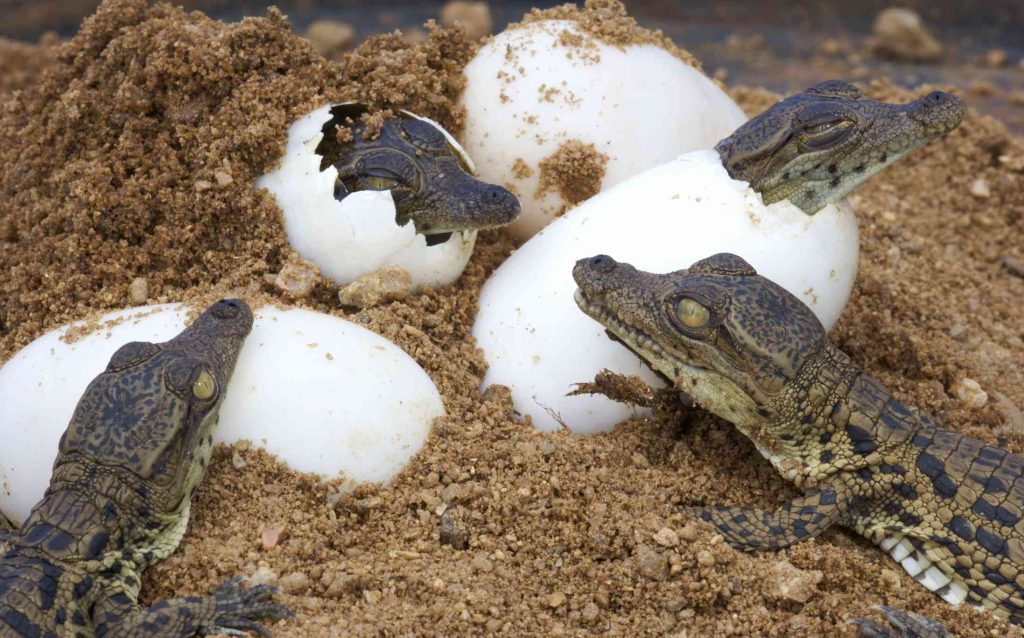
Isolated Crocodile Gives Virgin Birth in Costa Rica : A female crocodile kept under isolation at a wildlife park in Costa Rica has managed to produce eggs without sexual intercourse with male partner.
While there is no prior scientific record of virgin birth in crocodiles, the recent development in Costa Rica makes important contribution to researches on parthenogenesis reproduction in animals.
About Parthenogenesis Reproduction in Crocodiles
Parthenogenesis is a form of asexual reproduction where an unfertilized egg develops into an offspring. While parthenogenesis has been observed in some reptiles, including lizards and snakes, there is no scientific evidence to suggest that parthenogenesis occurs naturally in crocodiles.
Crocodiles, like other reptiles, reproduce sexually, meaning that fertilization occurs through the union of male and female gametes (sperm and eggs, respectively). Female crocodiles lay eggs, which are then incubated until they hatch. The eggs require external fertilization to develop into viable offspring.
While parthenogenesis has been experimentally induced in some reptiles through various means, such as manipulating temperature or hormonal stimulation, these occurrences are not natural or common in crocodiles.

Oh come on , seriously ? I dont f.cking believe this think. Not at all. Crocodiles cant reproduce parthenogenesis way.
Thats impossible in my opinion.
But of course i respect the scientists and if there is any finding that confirm it.
is it really possible for a crocodile to give virgin birth ? I dont think so. There should have been a scientific explanation for this unique incident.
Crocodiles cant reproduce without male sexual intercourse.
The phenomenon of crocodiles, or more specifically reptiles, producing offspring through a process called parthenogenesis, often referred to as “virgin birth,” is a fascinating aspect of their reproductive biology. Parthenogenesis allows certain species of reptiles, including some types of crocodiles, to produce viable offspring without the need for fertilization by a male. This reproductive strategy occurs when the egg develops into an embryo without genetic contribution from a male, essentially creating a genetically identical clone of the mother.
While parthenogenesis is relatively rare in the animal kingdom, it has been observed in various reptile species, including certain types of snakes, lizards, and yes, even crocodiles. However, it’s important to note that not all crocodiles are capable of parthenogenesis, and it is most commonly reported in captive populations.
The ability of certain reptiles to reproduce in this manner is intriguing from a scientific standpoint, as it challenges our understanding of traditional reproductive processes. It also raises questions about the potential evolutionary advantages and ecological implications of parthenogenesis in these species.
Nevertheless, it’s important to remember that while parthenogenesis occurs naturally in some reptiles, it is still a relatively rare occurrence compared to the more prevalent method of sexual reproduction involving both male and female contributions.